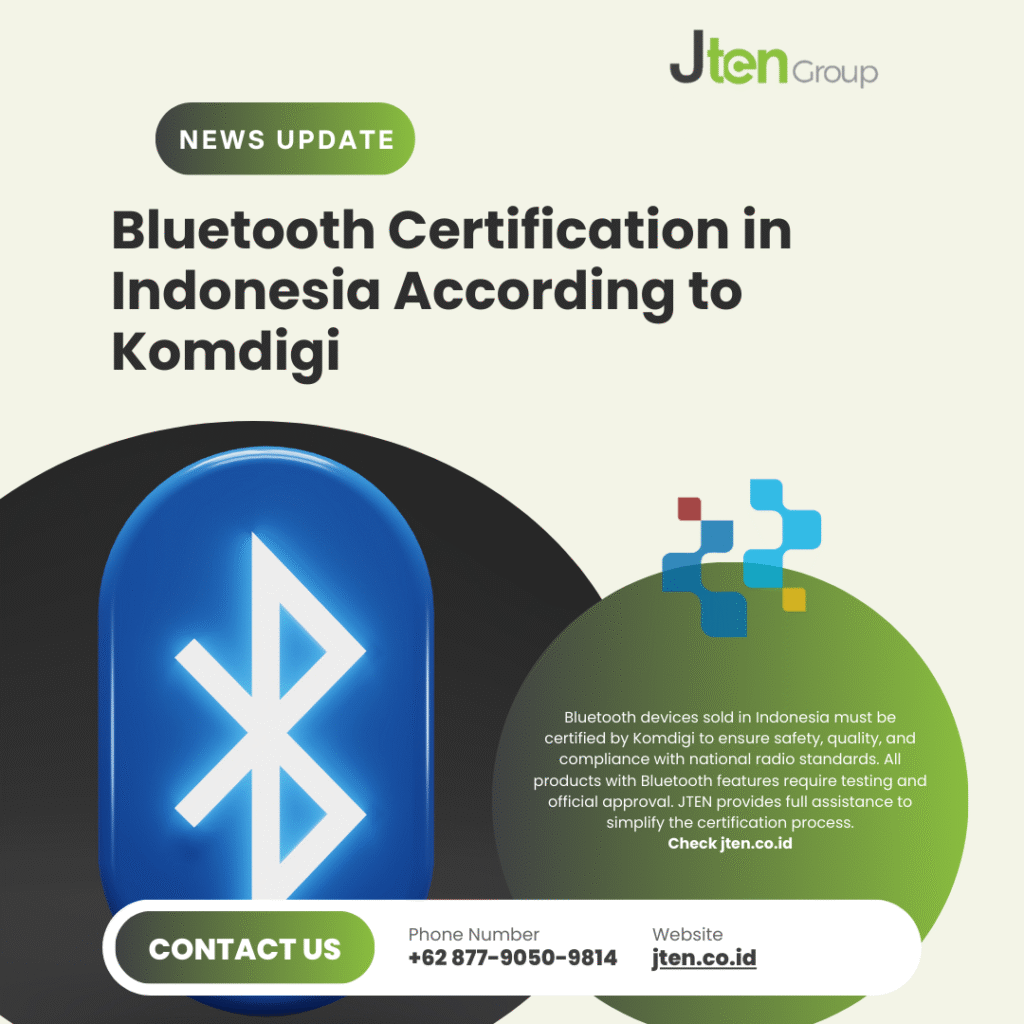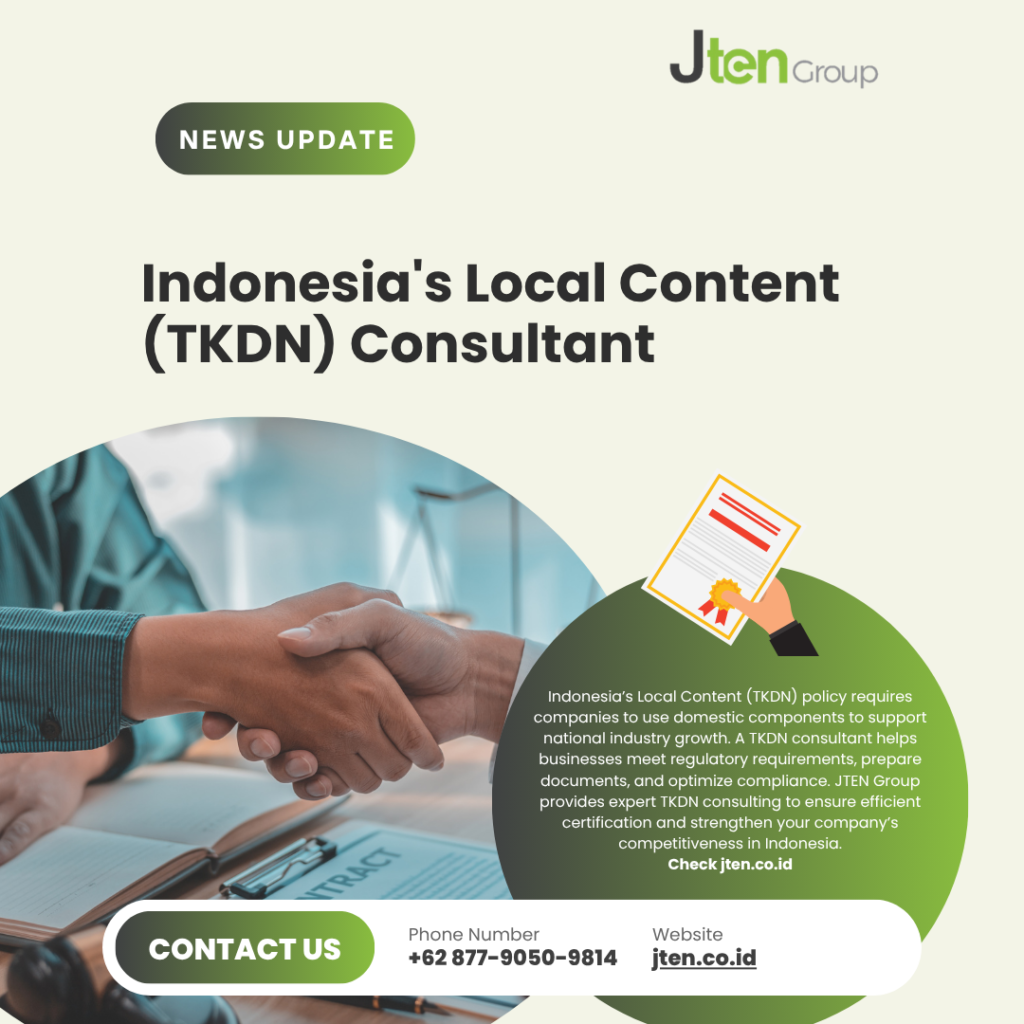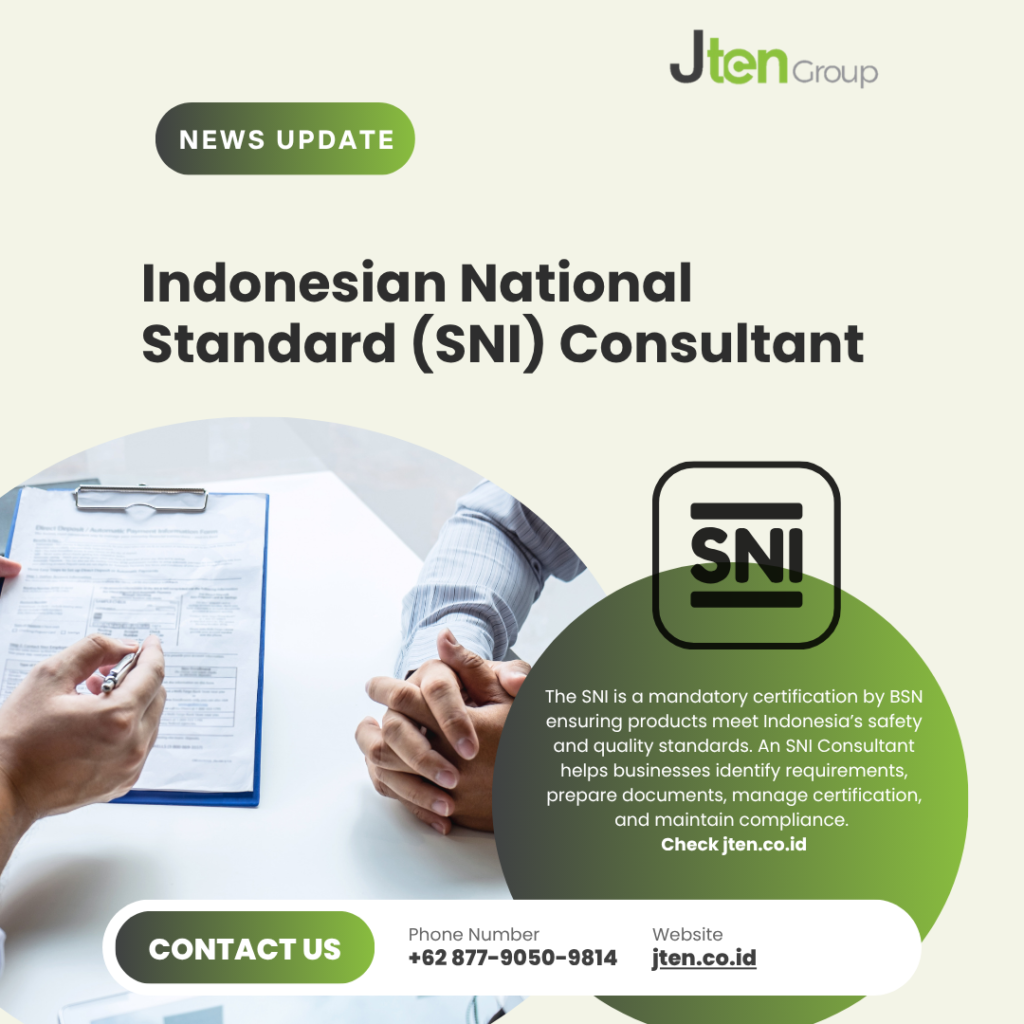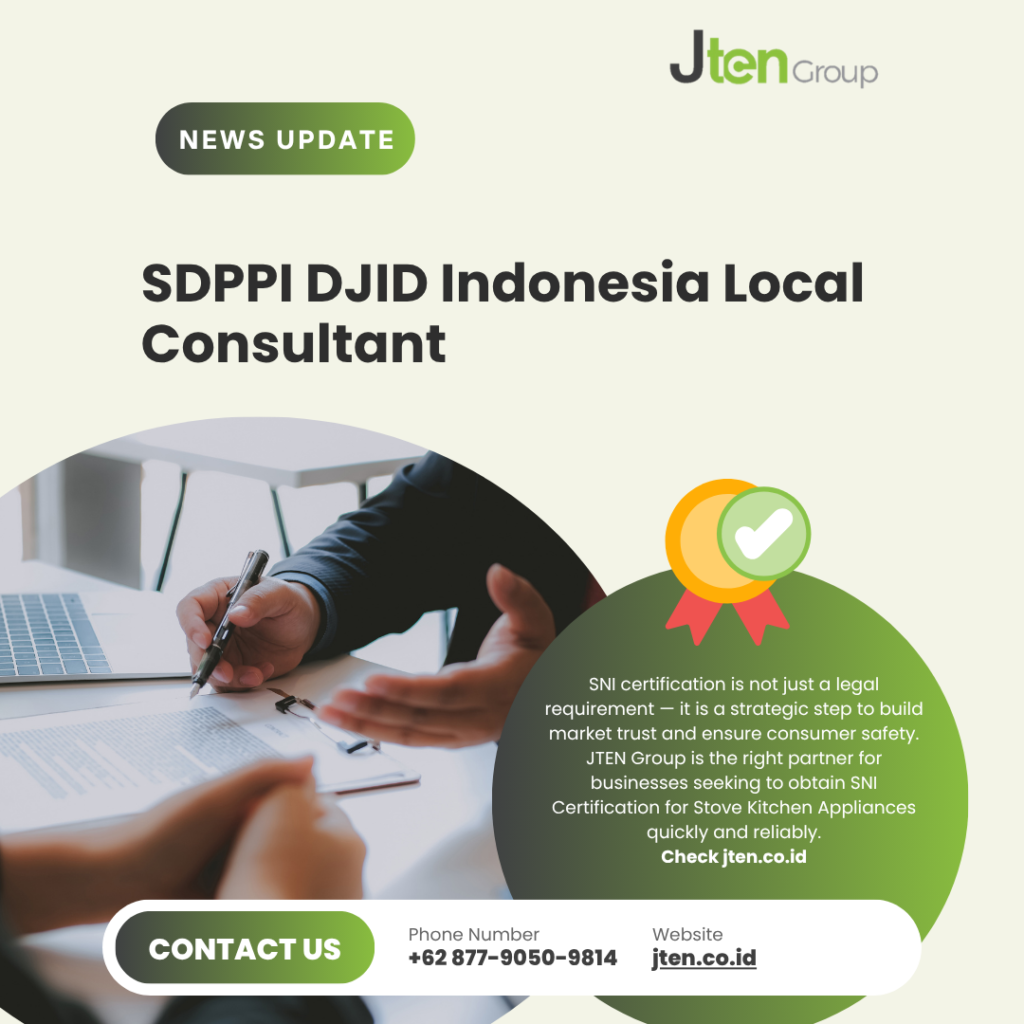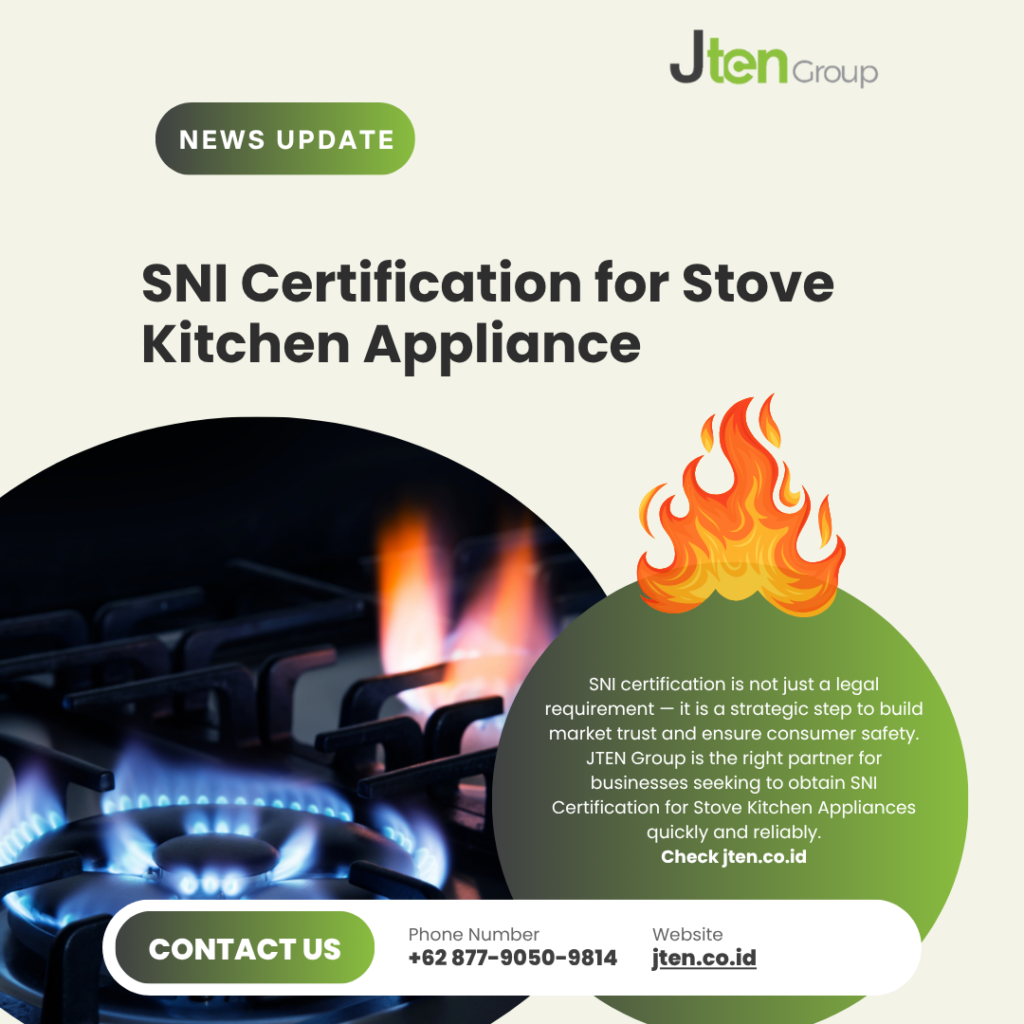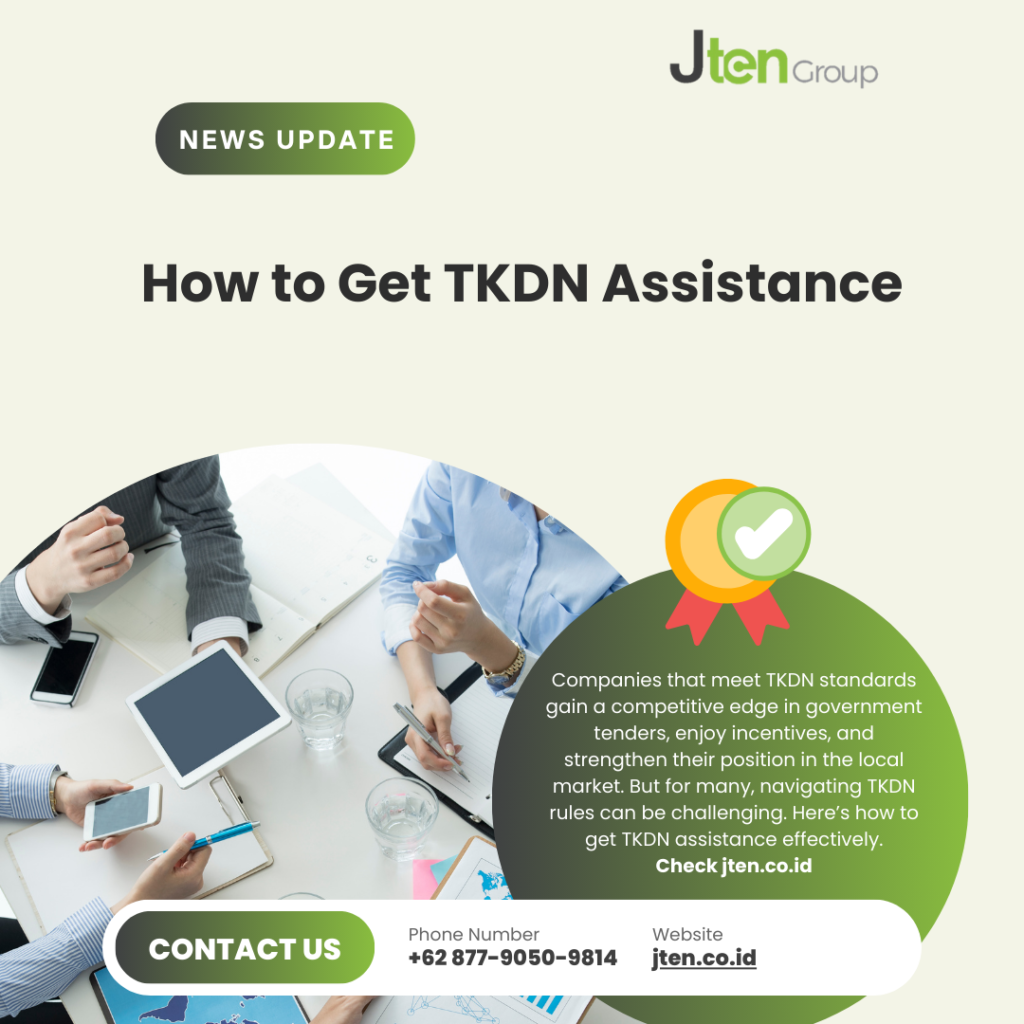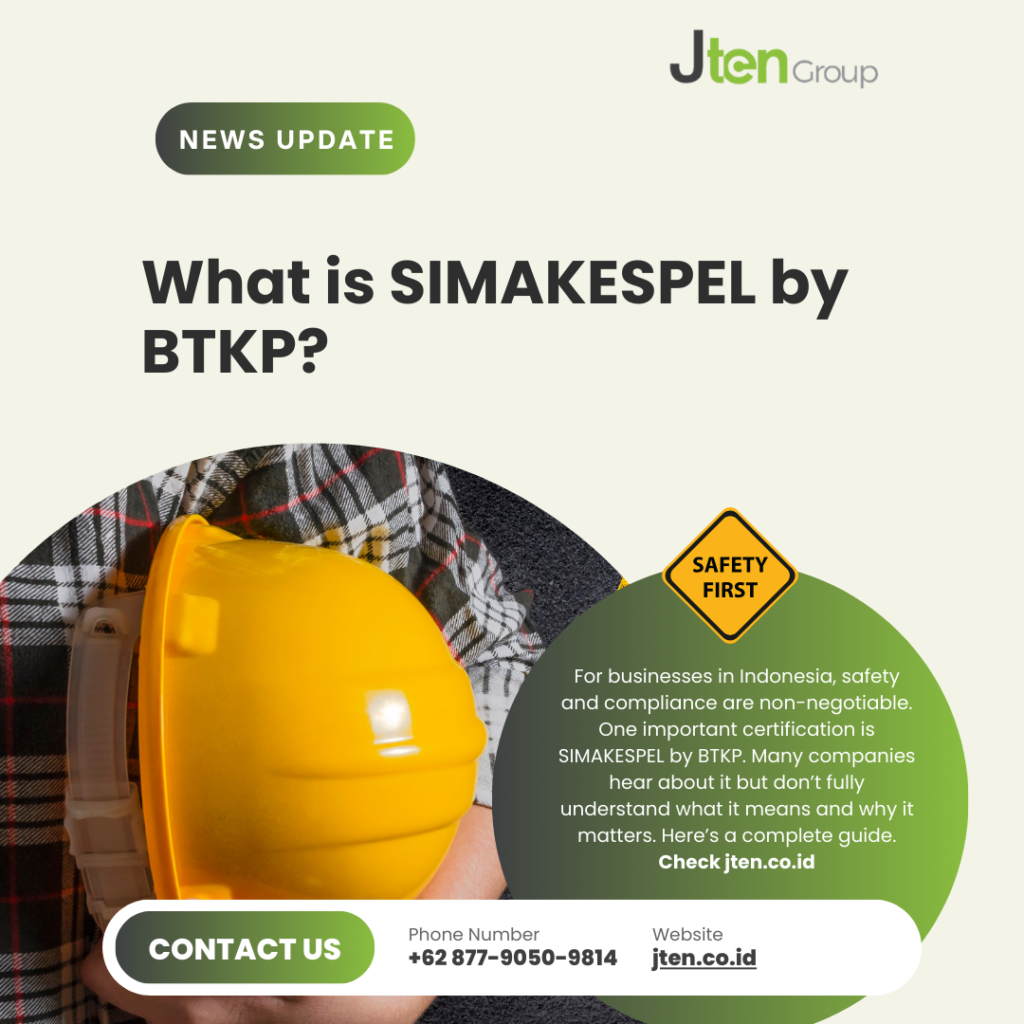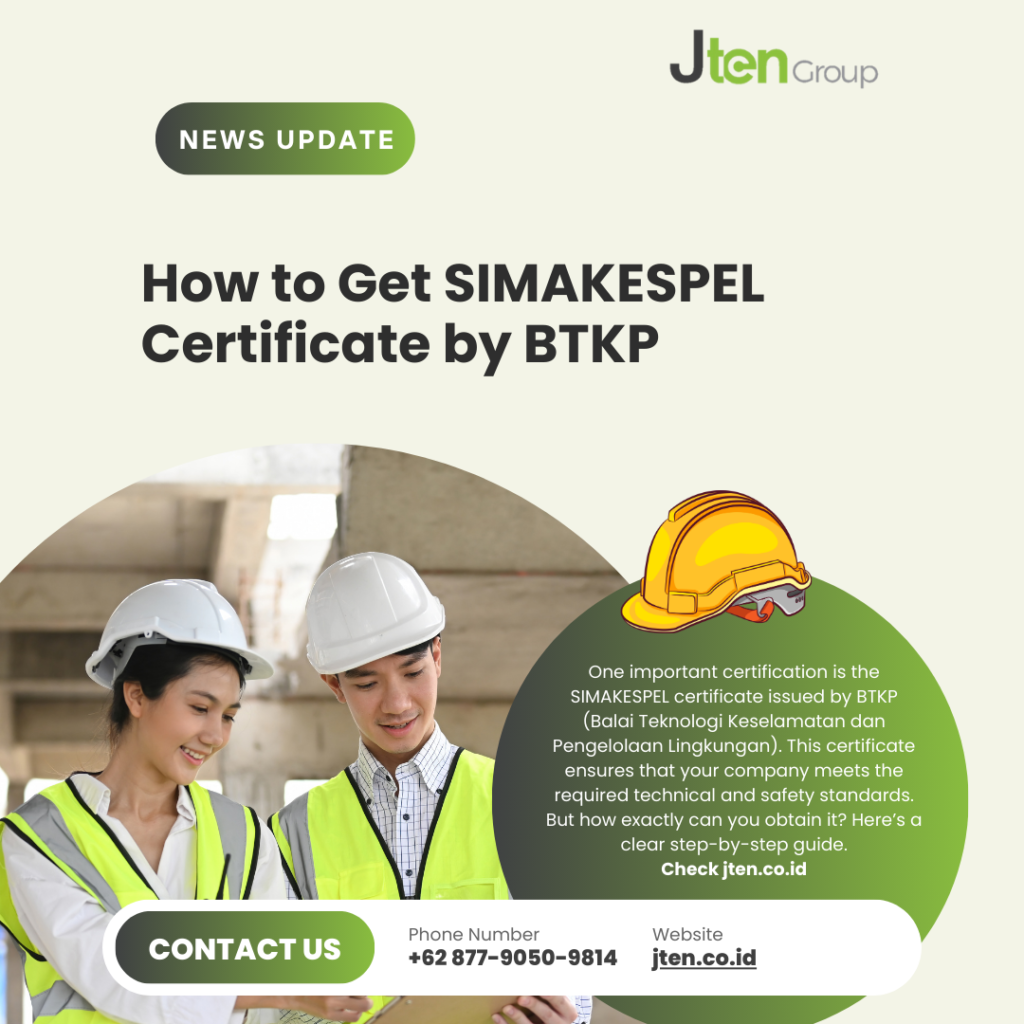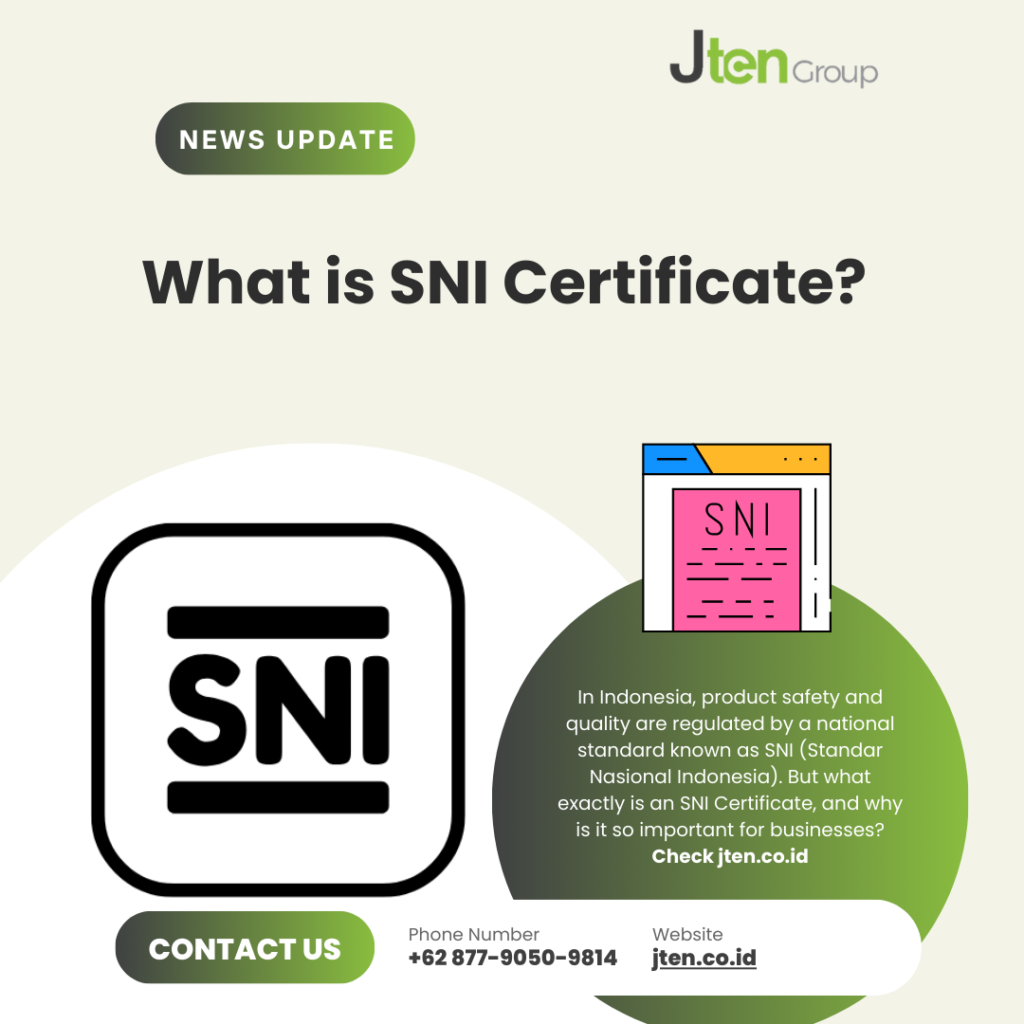Bluetooth Certification in Indonesia According to Komdigi
Bluetooth enabled devices are growing rapidly in Indonesia from earbuds and speakers to smart home devices and industrial IoT solutions. To sell these products legally in the Indonesian market, manufacturers and importers must comply with Komdigi (Kementerian Komunikasi dan Digital) regulations through an official certification process. This certification ensures that every Bluetooth device meets the national technical standards for radio frequency safety, interoperability, and electromagnetic compatibility. Why Bluetooth Certification Is Required in Indonesia Komdigi enforces certification for all devices using radio frequency features, including Bluetooth. This requirement aims to: Without proper certification, devices may face import rejection, market withdrawal, or legal penalties. Types of Devices Requiring Bluetooth Certification Any product containing Bluetooth functions must be certified, including: Even if Bluetooth is only one of several features, certification remains mandatory. Bluetooth Certification Process Under Komdigi The certification process typically includes: 1. Device Testing at an Accredited Lab Products must undergo technical testing, covering: 2. Document Submission Applicants must prepare documents such as: 3. Review by Komdigi The ministry examines all test results and documentation. 4. Certificate Issuance (Sertifikat Alat/Perangkat) Once approved, the device receives an official certification number required for importation and distribution. Benefits of Getting Certified Need Assistance? JTEN is Ready to Help Managing Bluetooth Certification under Komdigi regulations can be time-consuming and complex.JTEN provides a complete certification service, including testing coordination, document preparation, and handling the full approval process until your certificate is issued. 👉 Ensure your Bluetooth device is fully compliant Contact JTEN today!

